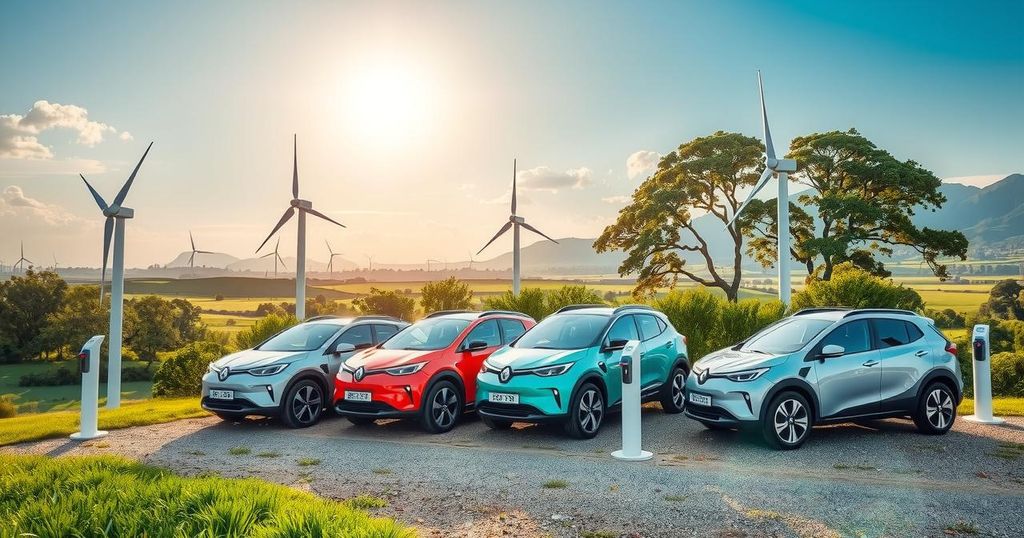South Africa’s Transformation: From Loadshedding to Electric Vehicle Leadership
South Africa has transitioned from persistent loadshedding to a promising electric vehicle (EV) manufacturing hub through stable power supply and government initiatives. The automotive industry, fortified by global manufacturers and supportive policies, stands to capitalize on this opportunity. With strategic trade agreements, favorable incentives, and a collective approach within Africa, South Africa is positioned to boost exports and spur economic growth through EV production.
A year prior, South Africa faced the challenge of consistent loadshedding, rendering electric vehicles (EVs) a distant prospect. However, the situation has considerably improved, with a stable power supply and proactive government initiatives paving the way for South Africa to emerge as a significant player in the EV manufacturing sector. This transition is not merely about automobiles; it presents a vital opportunity for industrialization, export expansion, and economic development.
The automotive industry is integral to South Africa’s industrial framework, displaying a level of maturity that surpasses most other African nations. The presence of global Original Equipment Manufacturers (OEMs) such as BMW, Toyota, and Nissan highlights the sector’s robustness. Initiatives like the Automotive Production Development Programme (APDP) aim to enhance production and job creation while fostering a competitive automotive landscape.
In November 2023, the Department of Trade, Industry, and Competition released the Electric Vehicles White Paper, acknowledging the seismic shifts within the global automotive industry. This document emphasizes the opportunity for South Africa to leverage its manufacturing expertise, logistical infrastructure, and advantageous trade agreements to capitalize on the emerging EV market. Notably, trade agreements like SADC and AGOA are pivotal for South Africa’s access to various markets.
To stimulate electric vehicle production, the White Paper proposed ten critical actions, which the government is already implementing. Key initiatives include raising investment levels with effective incentives, developing a regional electric battery value chain, and enhancing export market access for vehicles produced domestically. Furthermore, the Taxation Laws Amendment Bill introduces a 150% tax deduction for eligible EV production assets, providing a compelling incentive for investors.
Additionally, proposed amendments to the APDP Regulations aim to support the shift towards electric vehicles by incentivizing local manufacturers through the Production Rebate Certificate. The concept of ‘rules of origin’ plays a crucial role in trade agreements such as AfCFTA, determining eligibility for duty-free trade based on manufacturing locations, pending finalization expected by October 2025.
Current competition is on the rise across the continent, with initiatives like the hub-and-spoke model advocated by AfCFTA emphasizing regional cooperation in automotive manufacturing. Countries such as Kenya, Ghana, and Nigeria are actively promoting electric mobility developments, focusing on electric public transport solutions. According to the United Nations Environment Program (UNEP), these efforts contribute to a collaborative EV value chain across Africa.
For the envisioned automotive transformation to materialize, critical infrastructure enhancements and efficient logistics are essential. If South Africa can navigate these logistical challenges successfully, it will not only expand its export market to non-traditional destinations but also meet the growing demand for EVs within Africa. The shift from loadshedding to electric vehicle leadership exemplifies South Africa’s resilience and its potential for a sustainable and industrialized future within Africa.
In conclusion, South Africa is on a transformative journey from battling loadshedding to becoming a leader in the electric vehicle sector. The government’s proactive measures, coupled with the nation’s strong automotive foundation, position it favorably within the regional and global markets. By addressing logistical challenges and fostering collaborative efforts across Africa, South Africa can capitalize on the burgeoning demand for electric vehicles, stimulating economic growth and industrial development.
Original Source: www.zawya.com




Post Comment